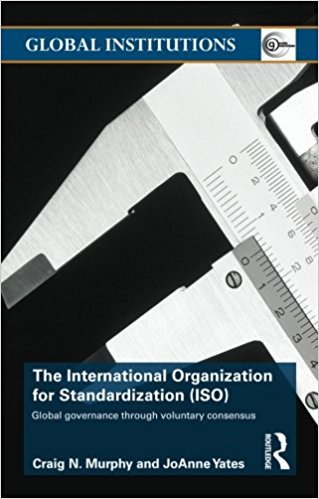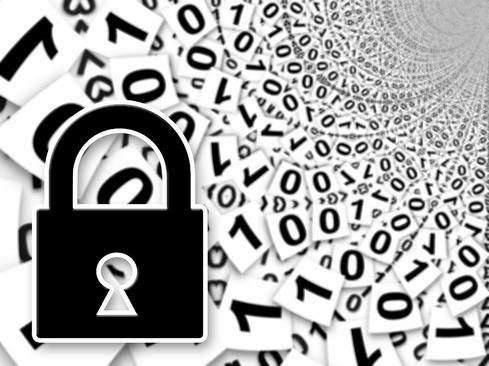
Companies deal with a lot of information and processes on a daily basis. In order to maintain efficient operations while still remaining competitive, they need to subscribe to a set of standards that will serve as the benchmark for their future strategy.
ISO aims to standardize core areas of businesses across many different industries. ISO quality assurance and standardization exists for multiple areas of a company’s operations; including manufacturing processes, equipment usage, data storage, and information systems. In order for a company to become ISO certified, it will be audited for compliance with established standards that serve as a guiding principle for the entire industry. ISO certification plays an important role in ensuring that a business remains relevant, competitive, and productive.
Defining ISO

The International Organization for Standardization (ISO): Global Governance through Voluntary Consensus (Global Institutions)
ISO is short form for “International Organization for Standardization”. It is a body that is focused on quality assurance standards across multiple areas of business operations. ISO oversees certain target areas of a company and ensures that these areas are compliant with the established guidelines.
The International Organization for Standardization started off as a single body in 1946 with membership from 25 countries. It was originally aimed at coordinating a set of industrial standards among member countries. Over the years, ISO has grown into a 162-member body that certifies many different operational areas. For example, ISO 27001 focuses on the security of information assets. It is a top concern for information technology companies as it ensures that they comply with a set of requirements that govern Information Security Management Systems (ISMS).
ISO and Information Security

Medical Systems Hacks Are Scary, but Medical Device Hacks Could Be Even Worse
The specific component of ISO that addresses information security is ISO 27001. Information security has become a hot topic in recent times due to the large amount of sensitive data that companies deal with on a regular basis. As more business processes are now being conducted online (such as procurement, sales, and bank transactions), customers and businesses are increasingly at risk of sensitive information being hacked or otherwise compromised.
ISO 27001 specifically addresses risks that pertain to Information Security Management Systems. These systems are used across many different industries, including retail, government, healthcare and banking. Therefore, many different companies can seek to become ISO 27001 compliant to show that they have taken active steps against the risks that could affect their data security.
The ISO 27001 certification is also a popular information security standard because it takes a risk-based approach as opposed to proposing specific measures for data security. Therefore, as long as a company can demonstrate compliance/mitigation of certain established risks, it can gain ISO 27001 certification. However, maintaining this certification requires businesses to understand the context, scope, and needs of their stakeholders when determining their security needs.
Why is ISO Certification important?

Why ISO Certifications Make Sense For IT
So why should businesses bother with obtaining ISO certification for the relevant area of their business?
Increasing market potential
ISO certification enables companies to attract more business and to grow their bottom line. Customers often want to work with a business they know is adequately certified. This is especially true in the information management and security space.
A client will want to ensure that the company that they entrust their information with is actually capable of maintaining the security of their sensitive data. ISO certification typically acts as a demonstration of this ability to potential customers.
Improving business operations
ISO standard practices are often aimed at boosting operational efficiency and minimizing costs. By adhering to these standards, businesses can implement the necessary changes that are affecting their core business processes and interfering with their bottom line.
As part of the tendering process
Certain companies that offer tenders require ISO certification before companies can apply. ISO certified companies would therefore have access to more lucrative opportunities in the specific area that they are certified.
Core Components of ISO Certification
ISO certification is aimed at ensuring that a company meets the established specifications during a particular timeframe. An external company will typically review the internal processes, ISMS and other data sensitive procedures to ensure that the business is compliant with ISO standards. An ISO certification process contains several core components that will define whether the business is compliant or non-compliant. These processes include:
GAP analysis for ensuring the appropriate controls of ISO 27001 (including document and record control to ensure accurate filing, use and retrieval of records)
Formal assessment of internal and external processes
ISO Audits
To ensure that the business is ISO compliant, several audits (both internal an external) will be carried out to ensure that your company is ISO complaint both on paper and in practice.
Specifically addressing ISO 27001 certification, several audits will be conducted to ensure compliance before certification is issued or renewed.
Internal Audits
An internal audit serves as a self-checking mechanism that is carried out internally to ensure processes are in place for ISO compliance. Internal audits can be carried out by company employees or independent contractors in order to identify any issues that should be addressed before the external ISO auditors arrive.
Internal ISO audits should be an on-going process that keeps your company on its toes with regulation compliance all year long.
Certification Audits
The ISO certification audit is the main event of ISO certification. External auditors will review documentation, processes, controls and records that apply to ISO 27001 certification.
Records will also be compared to daily processes to ensure that regulations are adhered to both in practice and in theory.
Surveillance audits
Surveillance audits are regular audits that are carried out in-between a valid ISO certification. Since certification is often issued for a 3-year period, auditors will want to ensure continued compliance during this time.
Surveillance audits will therefore generally address core areas that define the functionality of your ISMS, as well as any risk factors. They will also follow up on any issues that raised concern during the initial certification process.
ISO and the Resource Impact
Remaining ISO 27001 compliant can be a costly process. Regularly reviewing your ISMS and other core operations can take away from daily revenue driving functions. That is why incorporating automation into ISO compliance mechanisms can significantly reduce costs.
SaaS platforms can provide a more efficient mechanism for record keeping, monitoring core processes, and retrieving important information that will be used during auditing. Simply put, you can identify the core components of the audit process and map the controls that will need to be monitored/adjusted regularly in order to remain ISO 27001 compliant.





